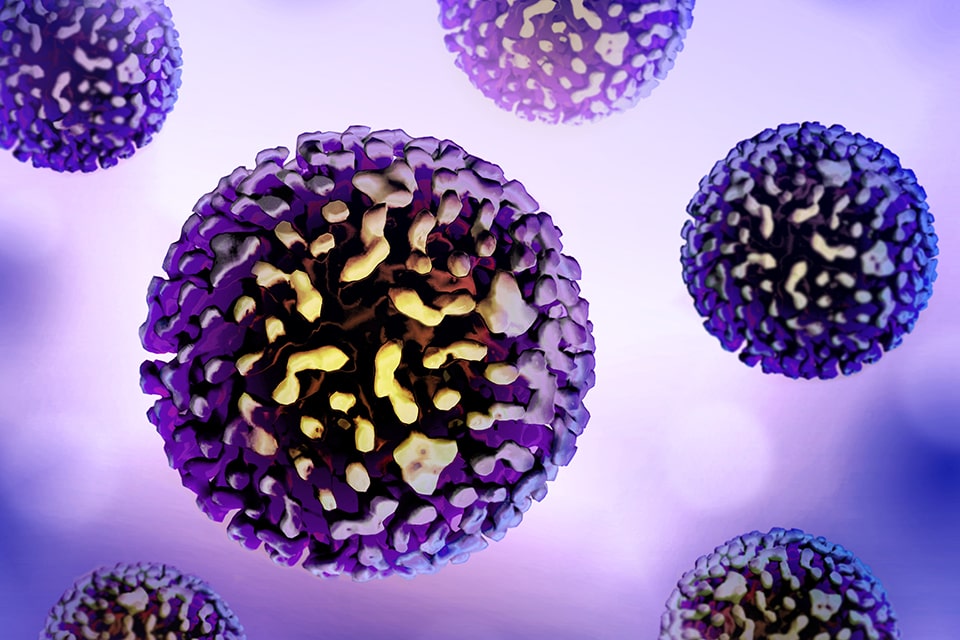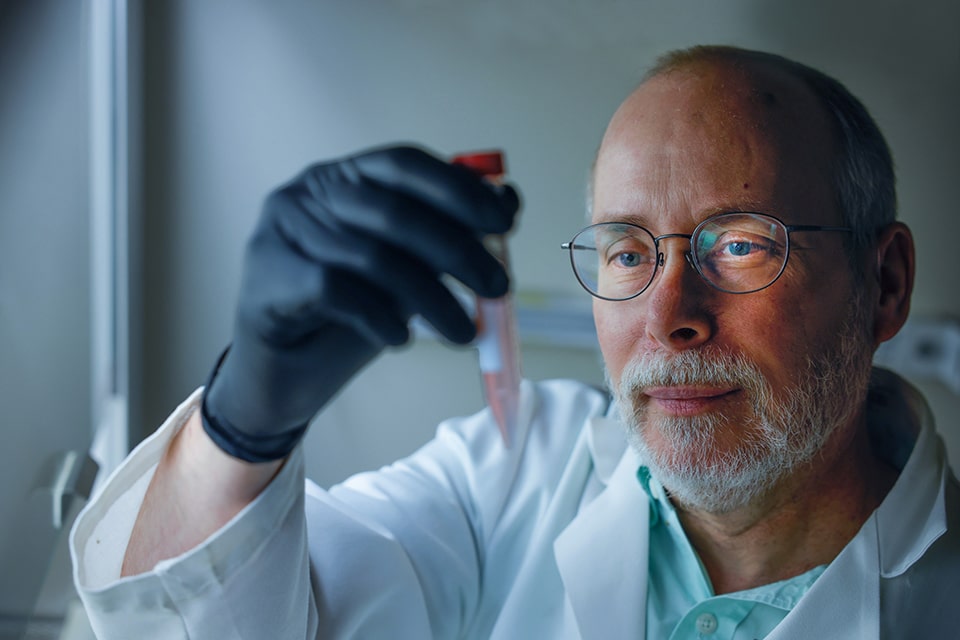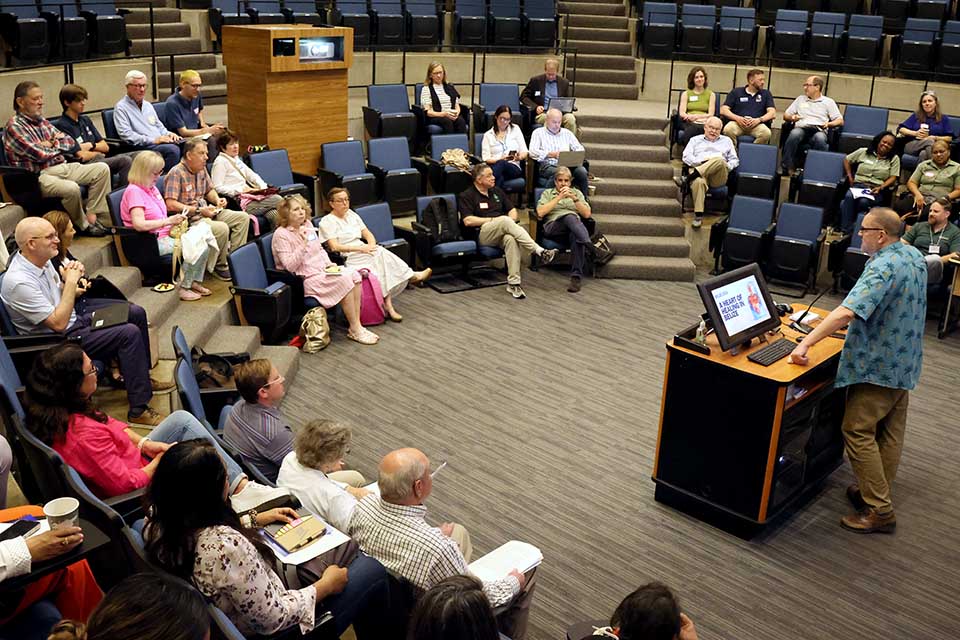Lentine Receives Award of Merit for Outstanding Contributions to Scientific Medicine
Krista Lentine, M.D., Ph.D., professor of medicine at Saint Louis University’s School of Medicine, is the 2024 recipient of the St. Louis Metropolitan Medicine Society Award of Merit for Outstanding Contributions to Scientific Medicine.

Krista Lentine, M.D., Ph.D. Photo by Sarah Conroy.
Lentine is vice chair of internal medicine research, associate division director of nephrology, and medical director of living donation. Lentine is a widely recognized leader in nephrology and transplant medicine, with a career dedicated to improving kidney transplantation outcomes and advancing research in organ donation and recipient care.
“Dr. Lentine’s research and leadership in transplantation have improved patient outcomes and shaped the future of kidney donation and recipient care. Her dedication to advancing scientific medicine in St. Louis and beyond makes her a deserving recipient of this honor,” said SLMMS 2024 President Kirsten Dunn, M.D, in St. Louis Metropolitan Medicine Magazine.
St. Louis Metropolitan Medicine Society (SLMMS) was formed in 1836 and is one of the oldest medical societies in the U.S. The award, first established in 1927, recognizes distinguished and exceptional service to scientific medicine in the greater St. Louis community. Over nearly a century, only 40 individuals have received this prestigious honor.
Lentine was recognized at the group’s annual meeting earlier this year.
Throughout her career Lentine has been instrumental in shaping policies and guidelines for living kidney donation and transplantation, serving on the Organ Procurement and Transplantation Network (OPTN)/United Network for Organ Sharing (UNOS) Living Donor Committee, where she held the role of chair, and as director of the Scientific Registry of Transplant Recipients (SRTR) Living Donor Collective.
Her research is centered on critical patient-centered themes, including understanding disparities in living-donor and transplant-patient outcomes; developing tools for tailored risk prediction; improving access to transplantation and organ use, especially for under-represented persons; and reducing consequences of comorbidities such as cardiovascular disease in transplant patients.
Latest Newslink
- We Should Treat More People with Hepatitis B, SLU Expert SaysIn a pair of articles published in Lancet Gastroenterology and Hepatology, scientists lay out the case for why we should expand treatment recommendations for people with hepatitis B.
- Running Interference: Scientists Block Viral RNA, Aim to Cure Hepatitis BIn a recent paper published in Science Translational Medicine, a SLU scientist reports that a class of drugs called RNA interference (RNAi) therapeutics represent a major advancement in the treatment of chronic hepatitis B virus infections.
- Belize2020 Looks Ahead at SLU SummitEarlier this summer, Belize2020 organized a summit at Saint Louis University. Ten years after the coalition was created, with strong support from SLU to support Jesuit ministries in Belize, organizers felt the time was right to meet again.
- William L. Clay Sr., 1931-2025One of SLU's first African-American graduates, former Congressman William L. Clay Sr., died July 17, 2025, at the age of 94. He served in the U.S. House of Representatives for 32 years, becoming a towering figure in the fight for civil rights and social justice in St. Louis and nationally.
- A Camp Friendship that Stirred Up Lifelong BondsIn the summer of 2005, Mary Kate Keenoy (Chaifetz Grad '22) and Genevieve Willman met at SLU's Gardens to Tables culinary camp. What started as a shared interest in cooking grew into a lasting friendship that has endured for two decades.
- Bruce Bacon, M.D.: 1949-2025Bruce Bacon, M.D., professor emeritus of internal medicine, died Sunday, July 6, 2025. He was 75. Bacon was known globally for his expertise in all aspects of clinical hepatology, specifically hemochromatosis, viral hepatitis, chronic liver disease / general hepatology, and liver transplant. Bacon was also a member of the research team that discovered the gene for hemochromatosis, HFE, in 1996.













